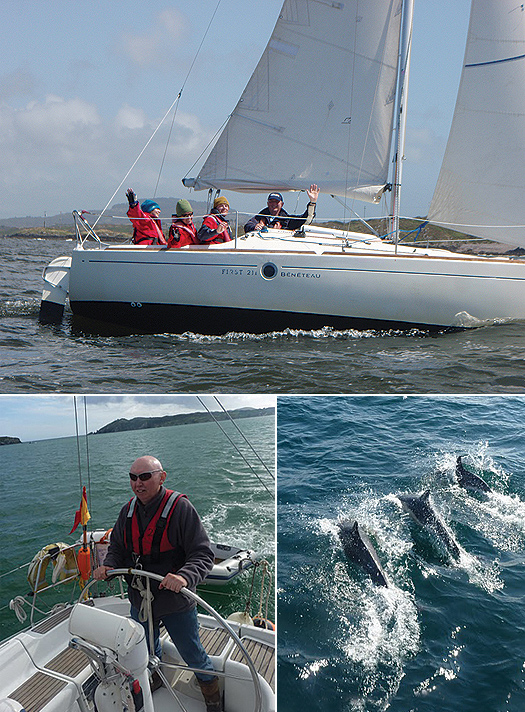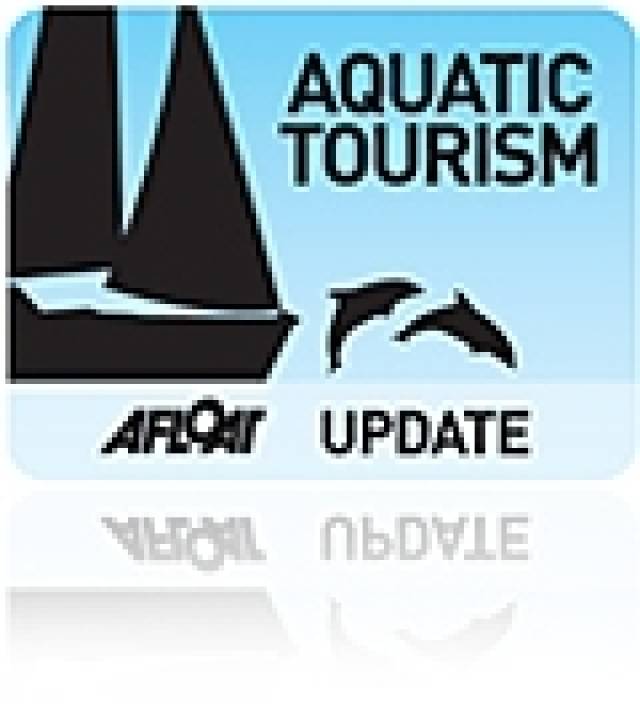After a quarter of a century, Glenans Irish Sailing Club has been reunited with its French parent association, writes Bryan Dobson.
Well known to generations of Irish dinghy and keel boat sailors, the Glénans sail training bases at Baltimore, Co Cork, and Collanmore Island in Clew Bay, Co Mayo, are reopening this season under new French/Irish management. The merger of Glenans Irish Sailing Club (GISC) with Les Glénans of France, prompted by financial difficulties in the Irish club, was approved by the two organisations last November, securing the future of the Irish bases which now becomes Les Glénans newest secteur.
The Irish operation, founded by the French in the 1960s but independent since the 1980s, will form part of an association which trains some 14,000 people each year, making it Europe's largest sail training organisation.

"It enables GISC to become part of a financially sound organisation with the same ethos," said Emma Sweeney, who was recently elected President of the Irish secteur committee. She and the 11 other committee members will assist in the running of the Irish bases, working with the French-appointed chef de base, Tom Daune.
Daune, who was an assistant chef de base for Les Glénans at île d'Arz in the Morbihan in Brittany since 2006, says they will "continue to refresh the fleets and buildings on the two bases" and "develop more cruising activity in Baltimore", as well as looking at the introduction of windsurfing in Collanmore.
Les Glénans has already demonstrated its commitment to the Irish secteur with new boats and equipment in place for the coming sailing season. The base at Collanmore in Clew Bay has taken delivery of 18 new catamarans. In Baltimore, the fleet of specially-designed Les Glénans 570 keel boats has been overhauled and added to, with each named after one of the seven deadly sins! The Glénans moorings at Baltimore have also been extended to accommodate two newly-delivered Sunfast 32s, which will be available for sailing courses in the magnificent cruising grounds of West Cork along with club's Sunfast 37 Sherkin ll.
Tom Daune says they "hope to have some strong links between Irish and French members....to permit them to sail together and to build a common knowledge. The courses are all bilingual. The main language is English, and French will be present too. So we have to develop our franglais."
"They're just mesmerised by the Irish coast," said Emma Sweeney of the French sailors from Les Glénans that she has met. She believes the merger will result in "significantly larger numbers of people coming to Ireland to sail in Baltimore and Collanmore".
And for the first time, Ireland will have a voice at the top table in Les Glénans with the election of Sinead MacAleese to the governing board of the organisation, the Conseil d'Administration. At the association's recent AGM, she topped the poll, out of 13 candidates, to secure one of only four vacancies on the Conseil.
A member of GISC for the last ten year and now based in Prague in the Czech Republic, Sinead has lived and worked in France for the last 12 years. She was one of the team that helped negotiate the merger of the two organisations, a development which she describes as "a great opportunity for the club to grow on two fronts".
Firstly, she believes there is an opportunity to deepen the ethos of Les Glénans, which is based on sailing without borders, on friendship and on volunteerism. "Volunteering is very important, a real core value," she said. And then there is the international dimension to the merger. "This is an opportunity for France to grow internationally." Les Glénans has a number of bases in Italy but Ireland is its first fully non-French secteur. And it means Les Glénans can offer Englis-speaking sailing courses to French and other non-Irish trainees in Ireland."They are very keen on developing English speaking courses," said Paul Rossiter, who was chairman of GISC in the run-up to the merger. A key member of the Irish negotiating team, he says the French association wanted to "spread their wings" as well as "insure that Glénans activities continued in Ireland".
Tom Daune believes it will be "very exciting for French, Belgian, Italian or Spanish members to sail in Ireland with Les Glénans. It's a new sailing area with an amazing landscape...and it's a fabulous place to learn more."
Les Glénans will be running courses at Baltimore and Collanmore from April through to October, for both adults and teenagers.
And according to Tom Daune, they can expect a unique experience: "Glénans arises from the dream of a more brotherly society and from a passion for the sea...Glénans is a sailing school, a sea school and a school of life."
For Les Glénans bookings see www.glenans.ie or phone 0033 153938600 (dial 1 and 1)
































































